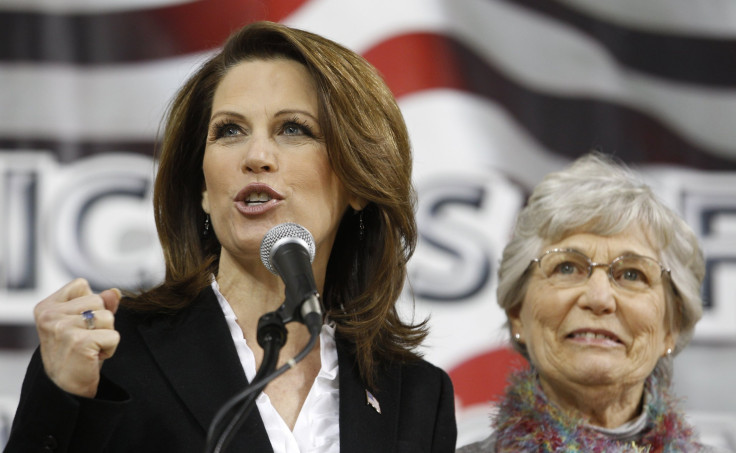Republican Women Are More Feminine-Looking, Study Says

Are Republican women more feminine looking compared to their Democratic counterparts? A new study suggest yes.
According to two researchers from the University of California, Los Angles (UCLA), female politicians who identify as Democrat are less likely to have stereotypically feminine features.
"Female politicians with stereotypically feminine facial features are more likely to be Republican than Democrat, and the correlation increases the more conservative the lawmaker's voting record," said lead author Colleen M. Carpinella, a UCLA graduate student in psychology.
Researchers instructed volunteers to compare each representative's face to normal face on more than 100 different features including the shape of the jaw, the location of eyebrows, the placement of cheek bones, the shape of eyes, the contour of the forehead, the fullness of the lips and the distance between such features as the bottom of the nose and the top of the lip.
The study will be published in the peer-reviewed Journal of Experimental Social Psychology, and researchers also assessed the participants' ability to guess part affiliation. According to the researchers, "When the undergraduates guessed that a politician was Republican, their judgments were 98 percent more likely to be accurate for women with the highest rankings for femininity; the accuracy of their judgments increased the more feminine the politician's face. When the undergraduates guessed that a politician was Democrat, their judgments were 58 percent less likely to be accurate for more feminine-looking women, and the accuracy of their judgments decreased the more feminine the politician's face."
Furthermore, the study supports mounting evidence that suggest voters may use shortcuts when forming impressions about political candidates.
"We weren't looking at hairstyle, jewelry or whether a person was wearing makeup or not," Carpinella said. "We wanted to get an objective measure of how masculine or feminine a face is, based on a scientifically derived average for male or female appearance."
Researchers assumed since the Republican Party is associated with traditional sex roles, Republican male politicians would also exhibit more masculine features through their appearance. Conversely, the theory did not hold among men.
"It may be unnecessary for Republican men to exhibit masculinity through their appearance," Carpinella said. "Their policy advocacy and leadership roles may already confer these characteristics on them."
Carpinella and colleagues believe party leadership may influence promoting a candidate who display physical features that reflects the party's value.



























